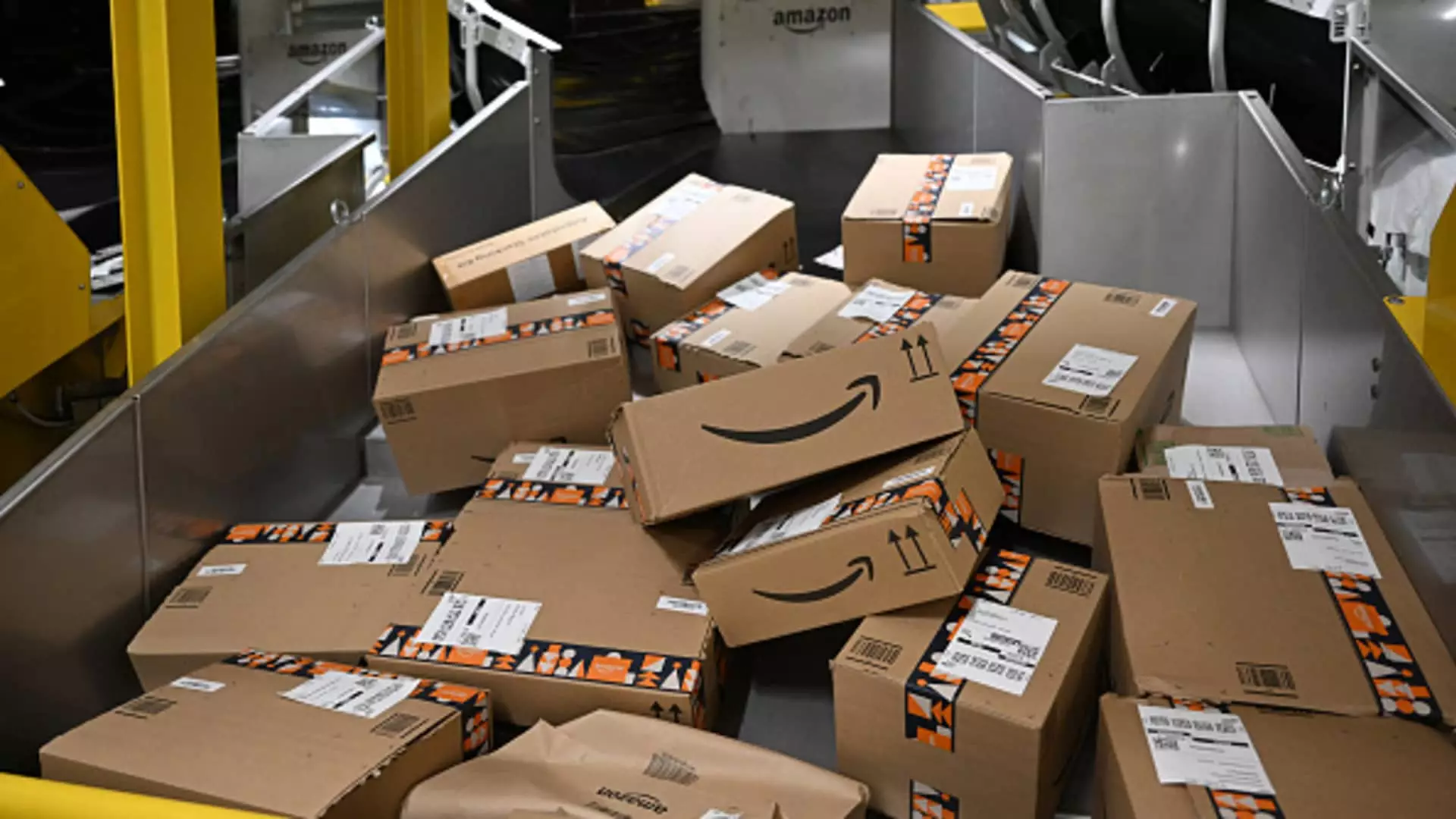In a shocking revelation, German antitrust authorities have raised alarms regarding Amazon’s pricing mechanisms for third-party sellers. While many consumers benefit from their vast marketplace, a deeper look suggests that Amazon’s strategies may be far more detrimental than they appear. The Federal Cartel Office’s preliminary findings serve as a wake-up call, highlighting concerns that the behemoth’s pricing controls not only undermine the autonomy of sellers but may also distort competitive dynamics within the entire online retail sector.
The crux of the issue lies in how Amazon utilizes algorithms to govern product pricing. By marking certain products as “too high” or “uncompetitive,” Amazon effectively exerts undue pressure on sellers, penalizing them with reduced visibility or completely stripping away their chances to appear in the coveted buy box. This isn’t merely a regulatory footnote; it signifies a challenge to the very foundation of free market principles, where competition should drive prices, not corporate algorithms.
The Fragile Balance of Market Power
The Federal Cartel Office’s President, Andreas Mundt, emphasized that Amazon operates a dual role, simultaneously acting as a marketplace facilitator and a direct competitor to the very merchants it serves. This duality represents an inherent conflict of interest. When a company is simultaneously empowered to control the visibility of its competitors’ offerings while retailing similar products, it raises fundamental questions about equity and fairness in commerce.
This scenario accentuates a profound inconsistency in the market. Amazon’s approach to managing its platform appears to favor individual profits over genuine consumer benefits. The assertion from an Amazon spokesperson, which defends their pricing policies as protective of consumer interests, rings hollow against the backdrop of alleged market manipulation. The idea that consumers will receive better service when sellers are hampered by price restrictions is fundamentally flawed. It denies the reality that lower prices can freely emerge only in an environment where competition is uncompromised.
Impact on Sellers: A Tightrope Walk
For third-party sellers, the implications of Amazon’s pricing practices are dire. The constant threat of demotion or exclusion from search results creates a precarious environment where sellers are forced to prioritize compliance with unyielding platform regulations over their pricing strategies. This dissonance puts immense pressure on small to medium-sized businesses, often resulting in a race to the bottom where profit margins shrink, and sustainability becomes a distant dream.
The ramifications extend beyond individual sellers. The presence of rigid pricing controls fosters an atmosphere of fear and compliance that ultimately discourages innovation and price competition across the board. Retailers are less likely to engage in aggressive pricing strategies when confronted with the looming specter of algorithmic sanctions. It’s a lose-lose scenario where consumers are deprived of the full benefits of competition, leaving them trapped in a marketplace that prioritizes Amazon’s stance over their own purchasing power.
A Pivotal Moment for Antitrust Action
The critical examination by German authorities is not an isolated incident; it resonates within a broader context of antitrust scrutiny facing Amazon globally. The company’s recent settlement with European regulators illustrates a growing awareness of its monopolistic tendencies, yet the question remains: are these measures sufficient to protect marketplace integrity?
With investigations by both the European Union and the U.S. Federal Trade Commission, it seems we are at a pivotal moment that could redefine Amazon’s impact on e-commerce. The FTC’s claims regarding Amazon’s pricing algorithms are particularly significant, as they highlight concerns that transcend regional boundaries. A central question emerges: What does it mean for market balance when a singular entity holds such overwhelming control over pricing dynamics?
As the scrutiny continues, consumers and sellers alike must remain vigilant. The fight for fair competition in the digital age demands not only regulatory diligence but also a collective push from stakeholders to ensure the marketplace works for everyone, not just the few at the top.


Leave a Reply